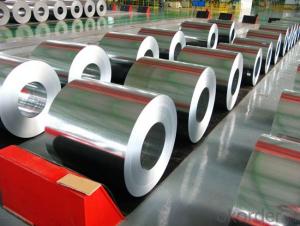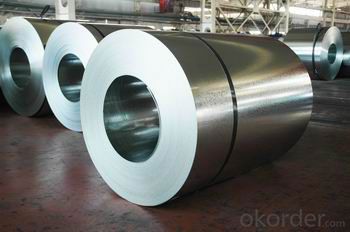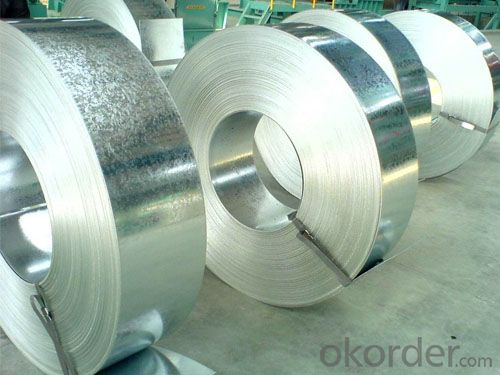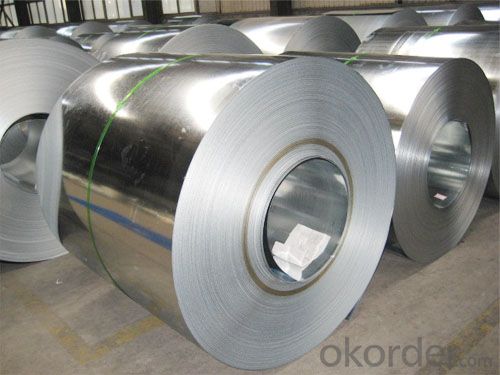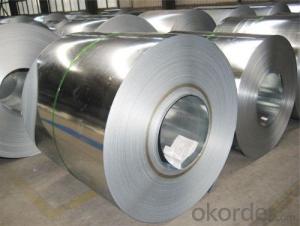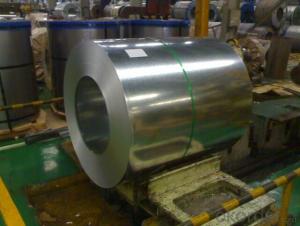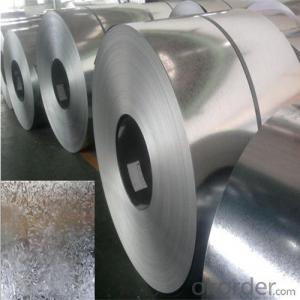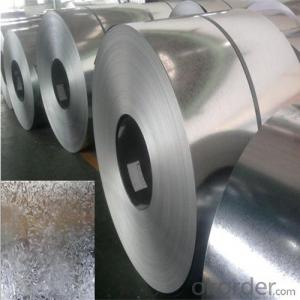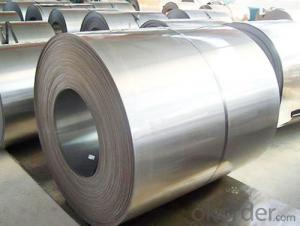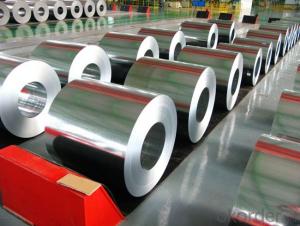HOT-DIP GALVANIZED STEEL COIL WITH SUPER HIGH QUALITY
- Loading Port:
- Tianjin
- Payment Terms:
- TT OR LC
- Min Order Qty:
- 25 m.t.
- Supply Capability:
- 5000 m.t./month
OKorder Service Pledge
OKorder Financial Service
You Might Also Like
Quick Details | |||||
Standard: | AISI,ASTM,BS,DIN,GB,JIS | Grade: | SGCC,DX51D/DX52D/S250,280GD | Thickness: | 0.12-4.0 mm |
Place of Origin: | China (Mainland) | Brand Name: | N/M | Model Number: | ssp-226 |
Type: | Steel Coil | Technique: | Cold Rolled | Surface Treatment: | galvanized/ Galvalume/zinc coatting |
Application: | strong anti-corrosion ability,cold bending molded manufacturablity | Special Use: | High-strength Steel Plate | Width: | 600-1250 mm |
Length: | in coil | product: | g40 prime/secordary hot-dip galvanized cold rolled steel coil/sheet | ||
Packaging & Delivery | |||||
Packaging Detail: | standard export package,Other types of packing can be customized as per client's requirement. | ||||
Delivery Detail: | as per client's requirements | ||||
Specifications
1.Mateials:SGCC,DX51D / DX52D / S250,280GD
2.Size:width:600-1250mm(900mm,1215mm,1250mm,1000mm the most common)
thickness:0.15-2.0mm
length:1000-6000mm,as your require
3.Zinc coating :60-180g( as required)
4.Coil id:508mm
5.Coil weight: 3-5MT(as required)
6. Surface:regular/mini/zero spangle, chromated, skin pass, dry etc.
7. Application:
With excellent cold bending molded manufacturablity, good decoration effect, strong anti-corrosion ability, galvanized steel coils and sheets are also pollution-free and easily recycled. Accordingly, they can be used as final products and basic plates of color coated steel coils.
8.Packaging Details:
Standard export package.
Other types of packing can be customized as per client's requirements.
- Q: What is the role of steel coils in the manufacturing of agricultural machinery?
- Steel coils are used in the manufacturing of agricultural machinery to provide strength, durability, and structural integrity to the equipment. They are typically used to form the main body and framework of the machinery, ensuring it can withstand heavy loads, harsh environments, and repetitive use. Additionally, steel coils are often used to fabricate specific components, such as blades, cutting edges, and structural supports, which are crucial for the proper functioning of agricultural machinery in various farming operations.
- Q: How are steel coils used in the manufacturing of automotive parts?
- Steel coils are used in the manufacturing of automotive parts as they provide a versatile and cost-effective material for producing various components. These coils are first processed and shaped into specific forms, such as sheets or strips, which are then further worked on to create parts like body panels, chassis, and suspension components. The high strength and durability of steel make it suitable for ensuring the structural integrity and safety of automobiles, while its malleability allows for easy forming and welding processes.
- Q: I am looking to weld some stainless steel using stainless electrodes. I was told that the arc welder needs to be able to run in DC in order to be able to weld stainless steel. Is this true? Or can you weld stainless steel with stainless electrodes with AC also?
- there are tradeoffs to the various methods you can use. Check out this link for the scoop on what they are and what the settings should be given the material you are using and the type of welder you decide to use.
- Q: How are steel coils handled during loading and unloading?
- Steel coils are typically handled using cranes, forklifts, or coil hooks during loading and unloading. The coils are carefully lifted, secured, and transported to their respective destinations. Special attention is paid to ensure proper balance, stability, and safety measures are followed to prevent any damage or accidents during the process.
- Q: A song by brokencyde is called Blue Steel.... a verse in it says Don't make me show you blue steel.
- Reference is to a gun which is typically the process of Bluing the steel of the guns metal parts.
- Q: .Yea, so I just saw the old Conan movie with Arnold. Good movie, but I still don't get it. What IS the riddle of steel???I get that like from the begining Conan's dad is like telling him a story about Crom and giants, and people got steel once Crom killef the giants. Then, later on in the movie Conan's talking to his lil' asian homie, and Conan tells him that when he dies... he'll go before Crom, and Crom will ask him what the riddle of steel is, and if he doesn't know it he'll get kicked out of barbarian heaven!But, what is the riddle of steel???C'mon guys... I want to in to barbarian heaven! LolBut, seriously though... what us it???.
- Doom answers this question by explaining to Conan that the true strength of steel is in the hand that wields it – in other words, it is the resolve and commitment we bring to a task, not the quality or quantity of tools we use in performing it, that is the most important factor in determining success
- Q: What are the common methods of joining steel coils together?
- The common methods of joining steel coils together include welding, mechanical fastening (such as using bolts or screws), and adhesive bonding.
- Q: How do steel coils contribute to the circular economy?
- Steel coils contribute to the circular economy by enabling the recycling and reuse of steel. When products reach the end of their life cycle, steel coils can be easily melted down and repurposed to create new products. This reduces the need for extracting virgin materials, saves energy, and minimizes waste. Additionally, the durability and long lifespan of steel coils ensure that they can be used in multiple cycles, further promoting a sustainable and circular approach to manufacturing and consumption.
- Q: How are steel coils processed?
- Steel coils are processed through a series of steps, including cleaning, pickling, cold rolling, annealing, and tempering. These processes help to remove impurities, improve surface finish, reduce thickness, and enhance mechanical properties of the steel coils.
- Q: Steel resist tension. Then why we provide steel in compression zone ?
- There are several reasons to add compression steel. Keep in mind, supported steel (meaning it can't buckle) resists compression as well. Compression steel helps reduce long term deflections. Concrete creeps under sustained loads. Steel lessens the compression, meaning less sustained compressive stress to cause creep deflection. It makes members more ductile. Since the steel takes some of the compressive stress, the compression block depth is reduced, increasing the strain in the tension steel at failure, resulting in more ductile behavior (the moment at first yield remains largely the same with compression steel added, but the increase in capacity after yield is significant). Compression steel insures that the tension steel yields before the concrete crushes, meaning it helps change the failure mode to tension controlled. It makes beams easier to construct. With bars in the top and bottom, you have longitudinal reinforcement in all 4 corners of the shear stirrups to keep them in place when pouring the concrete. Also, for continuous members, its often easier to run your negative moment steel the full length of the beam rather than trying to cut it off in the positive moment regions. Serviceability concerns. You're going to end up putting steel in that region anyway to for temperature and shrinkage.
Send your message to us
HOT-DIP GALVANIZED STEEL COIL WITH SUPER HIGH QUALITY
- Loading Port:
- Tianjin
- Payment Terms:
- TT OR LC
- Min Order Qty:
- 25 m.t.
- Supply Capability:
- 5000 m.t./month
OKorder Service Pledge
OKorder Financial Service
Similar products
Hot products
Hot Searches
Related keywords
